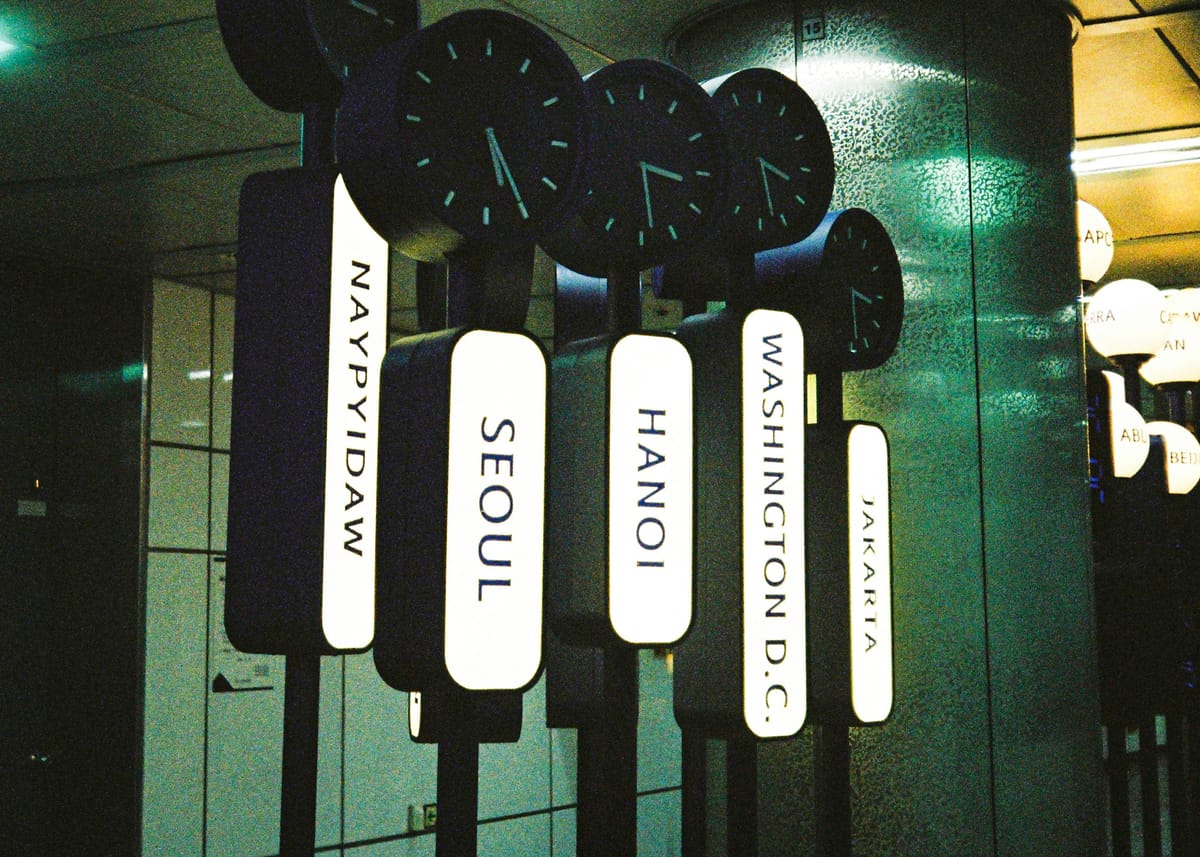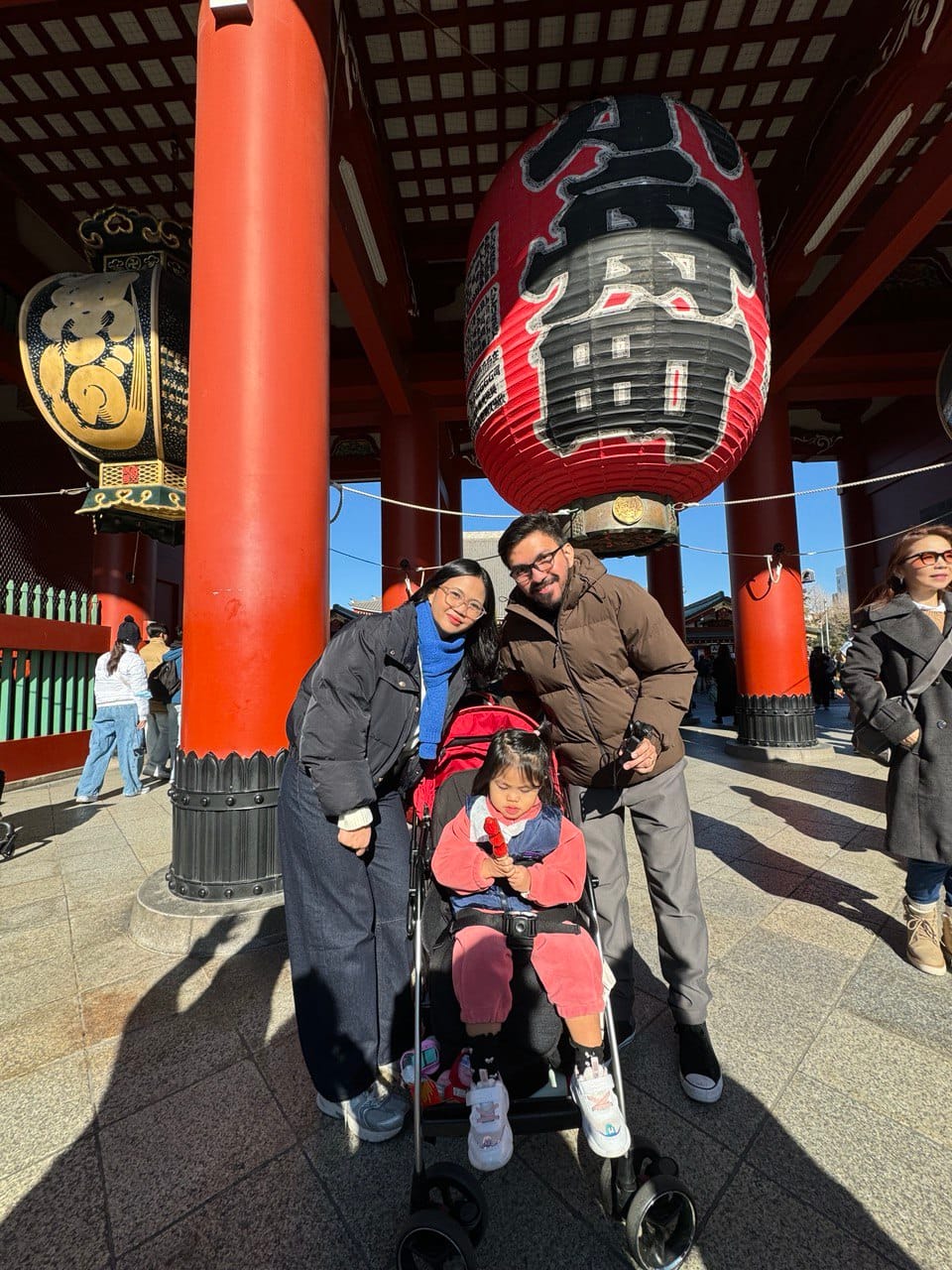From Routine Selfies to Intimate Histories
I've realized that social media has warped our sense of recollecting... Our desire should be nothing more than to chronicle our lives, and create intimate histories we could all learn from.

During our last family vacation trip in Seoul, we barely took any pictures.
I'm the one to blame for that. I was usually the one in charge of taking photos on trips like this to be posted on Facebook and Instagram. This has been the case even before my wife and I got married and had a kid.
Not that I don't want to collect memories anymore. Quite the opposite: since I became a father, I've turned into a voracious archiver of memories, and photos just don't cut it anymore. I have exchanged still pictures for long videos.

The Unfiltered Honesty of Videos
Instead of using my phone to snap up selfies, I use my video camera to record my wife pushing the stroller along the streets of Kyoto, Manila, or Taipei.
I record us eating street food in Dotonbori, quietly having coffee in a cafe somewhere, or hurrying to hop on a train in a foreign country. I edit these videos and post them on YouTube, and back home, we watch them over and over again.
Videos are a lot of hard work to create but, personally speaking, they are superior to photos in many ways.
Firstly, they're not as curated. They are more raw, unrefined, and closer to what actually happened during the time. Selfies, family pictures ("Say cheese!"), Instagrammable poses—these are all fine. But the way we so consciously direct the moments before we press the camera button so often obscures our recollection.
Videos are more honest. They'll capture your desperate expression as you look for the right train to ride amidst the crowd in a station. They'll record you feeling exhausted in a park bench, or giggling excitedly as you experience snow falling over your shoulders for the first time.
This is important.
Secondly, digital photos are no better than physical photo albums in their potential to get stashed in a nook and collect dust.
How many times do we actually go to our Facebook photo albums to look at old pictures? We dump them on our social feed in a routine manner—as if it's just what's expected when you go on a holiday—get those likes from our friends and family, and then just forget about them.
I scratch my head at people uploading a hundred pictures on Facebook in one go. Who looks at these one by one? I probably won't even if those were my pictures.
If not for Facebook's Memories feature, I wouldn't remember many photos I took existed.
A YouTube video on the other hand can be played anytime we turn on the TV. Our daughter loves watching them. She would see herself eating a candy-coated apple in Japan and tell us how sweet and juicy it was. She'd watch herself having fun in a playground and tell us how she hurt herself horsing around with little boys. "Two boys, remember?" she'd say.
I recorded myself going on a tour of our Airbnb in Kyoto which was a traditional Japanese house with tatami mats, the kind I always see in my favorite samurai movies. It was the first time I'd ever been in one. The clip shows me sliding the doors open and walking around the rooms, seeing our stuff scattered on the floor. Whenever I play it, I can still feel the smoothness of the wood, the softness of the tatami, and the cold of the room in that snowy weather in January.
Had I taken just pictures, I wouldn't have this heightened remembrance of these simple things that, in retrospect, I do like my mind to make room for no matter how small they are.
A Story We Tell Ourselves
We're only who we are because we remember the past, and we can tie that past to the present. We tell ourselves a narrative that goes as far back as our brain allows us to recall. Nevermind that memories are imperfect, even made up—they tell us a story and that story is the basis for who we think we are.
Our circumstances and even personalities may change over the course of time (I went from being an introvert to an extrovert to being an extreme introvert over the last 10 years), but we're able to say "That was me" precisely because our memories tell us so.
That's why people with dementia can't truly live because the subject is almost absent or practically nonexistent in a world where there's no past, and there's nothing, no data, to retrieve.
You are you—a subject with a story—situated in time.
And the preciousness of time starts screaming at you when you reach middle age. Every minute feels more irreplaceable. You're keenly aware of things that divert you from doing what's truly valuable.
I've loved this poem by Edgar Allan Poe since the first time I read it:
A Dream Within a Dream
Take this kiss upon the brow!
And, in parting from you now,
Thus much let me avow —
You are not wrong, who deem
That my days have been a dream;
Yet if hope has flown away
In a night, or in a day,
In a vision, or in none,
Is it therefore the less gone?
All that we see or seem
Is but a dream within a dream.
I stand amid the roar
Of a surf-tormented shore,
And I hold within my hand
Grains of the golden sand —
How few! yet how they creep
Through my fingers to the deep,
While I weep — while I weep!
O God! Can I not grasp
Them with a tighter clasp?
O God! can I not save
One from the pitiless wave?
Is all that we see or seem
But a dream within a dream?
Both painful moments and "best days ever," as our daughter likes to put it, are like grains of sand slipping through our fingers. They beg to be documented. Whenever I feel disinclined to use my video camera, I ask myself "When we'll we be doing this again? Will we ever visit this place again?" and then no matter how inconvenient it is, I whip it out and start recording.
The first video on our YouTube channel is us pushing our baby in a stroller in our neighborhood. Our daughter was so small then and she had those soft, chunky arms like marshmallows. I hit play and it's like this version of her smiles at me again from someplace real but different from where she and I are located now. It's like this version crosses a bridge of space-time to reach me and touch my heart.
We may have gotten older (and she may not be as chunky as before), but we can look back at our stories so easily.
Even the videos where she was too young to process events at the time are now part of her narrative. She identifies with the small baby chewing a hat in a video. "Why am I chewing a hat?" she'd ask. It would make me smile. How many of us can remember what we were doing when we were a year old?
Unmonetized Memories
The digital marketer in me obviously had considered optimizing our YouTube channel to get more followers. At present, we have a meager hundred. Over half of the views would be us playing the videos repeatedly.
At the start, I even tried adding a reminder to subscribe at the end of the video. But then I felt disgusted with myself. What the hell am I doing? What am I really after? Do I want us to be... influencers? Am I going to add useful tips now on how to raise a child? 10 places to check out in Hong Kong? Bah. The thought made me sick.
Joan Westenberg, whose writings I adore, describes "bounded endeavors." These are "pursuits intentionally limited in scope, scale, or duration. They’re the antithesis of the 'scale or die' mentality that dominates our cultural conversation about success and meaning."
They write:
Not everything needs to be efficient. Not everything needs to be optimized. Not everything needs to reach millions of people to matter.
The worth of a bounded endeavor isn’t measured by growth, reach, or profit. It’s measured by the depth of engagement, the quality of experience, and the meaning generated for those involved. Sometimes, the optimal outcome is to have done something well, created something meaningful, and then let it go.
This is exactly the value of these YouTube videos for me. I would spend long hours editing them not because I have plans of making it big someday, but because I'm always so excited when we finally get to plop on the sofa and watch them with my family.
Who cares if nobody but us likes them? I'm not reporting impressions and engagement to a stakeholder. I'm not getting a smaller budget because of poor results. I'm just being an enthusiastic father.
If other people happen to watch our videos because of YouTube's recommendation algorithm and like them, good. If not, it doesn't matter. What matters is we love our memories.
Which adds to the reason why I'm no longer inclined to take pictures. Before I snap a picture, the "rehearsal" that goes with striking the right pose assumes that I want to get engagement for an image. Sometimes I do. But in my age, oftentimes, I don't.
I'm just too old to get disappointed that nobody hearts my selfies.
A Chronicle of Our Lives
My goal is not to store data perfectly. There's beauty in distortion, the way we romanticize when reminiscing, and obscure or completely forget details when they're uncomfortable.
The cuts in our videos—just before the baby launches a massive tantrum, or seconds before I fell from a curb and sprained my ankle capturing shots of an iguana—those allow us to fill in the gaps.
The edited music smoothes out the experience or puts more emotion in it the way I felt it at the moment, like an annotation but in audio form.
These additions and omissions assist in packaging these events, which could be incongruent or disparate, so we can reflect on them better when we're finally watching them. Editing doesn't need to completely change experiences, it can make them richer and more fluent. All in all, it makes memories better and more useful to the narratives we're drawing.
I've realized that social media has warped our sense of recollecting. Our desire should not merely be to document just for the sake of it; to prove that a trip happened because you could see the landmark in the photo's background; to say that a food exists and we ate it as shown in the overhead shot. And then to gather likes and comments to verify a methodical process.
Our desire should be nothing more than to chronicle our lives, and create intimate histories we could all learn from.